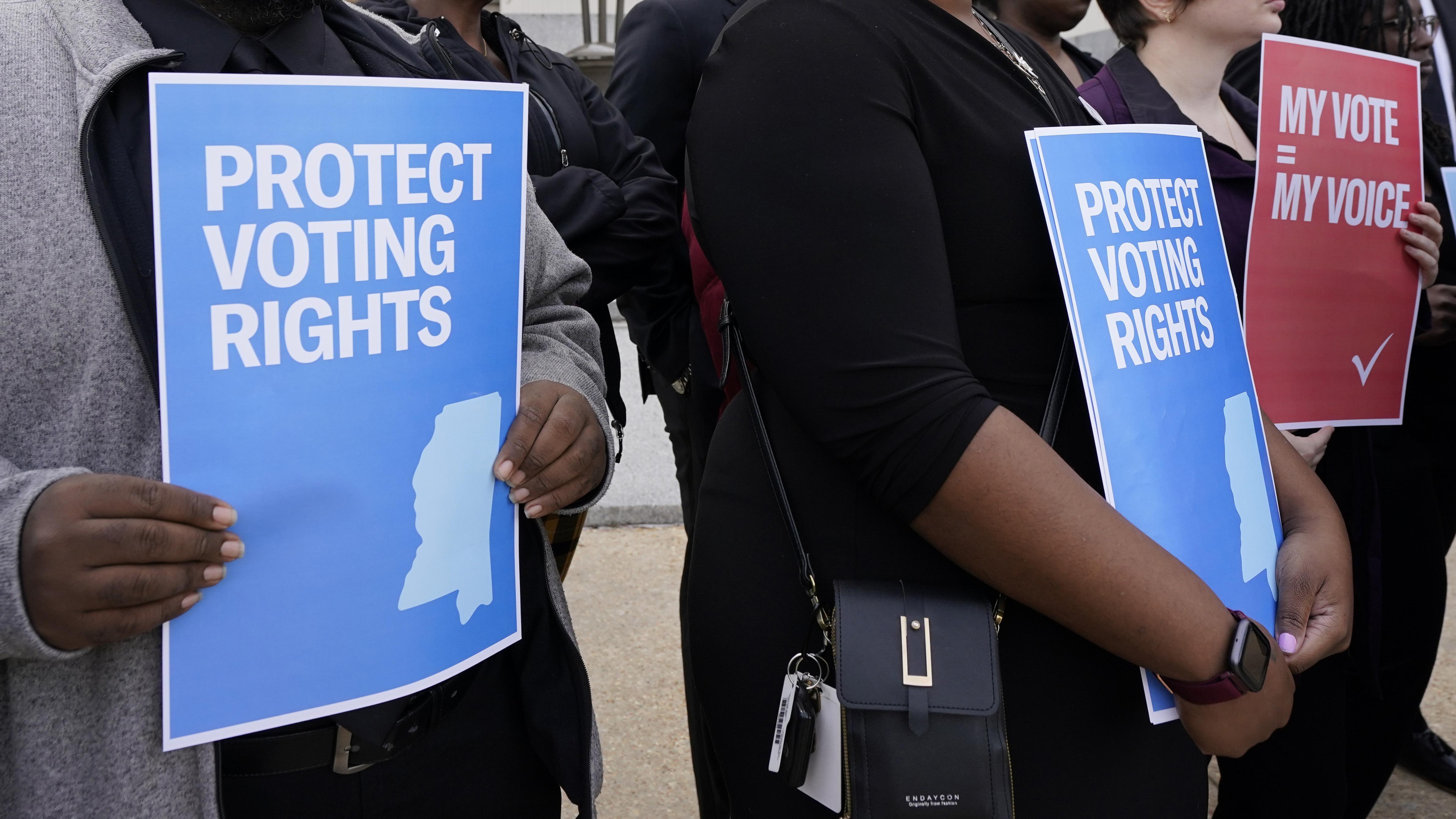The U.S. Supreme Court is considering a Mississippi voting rights case – one that could profoundly affect how voters fight discrimination.
Mississippi voting rights case could have national impact on discrimination suits


The U.S. Supreme Court is considering a Mississippi voting rights case – one that could profoundly affect how voters fight discrimination.

Elise Catrion Gregg
“Enormously significant”: Mississippi voting rights case could have national impact on discrimination suits
In State Board of Election Commissioners v. Mississippi State Conference of the NAACP, federal courts have already determined that several state legislative districts were discriminatory against African American voters.
That court ordered the lines redrawn to comply with Section Two of the Voting Rights Act. And, Mississippi isn’t arguing with that determination.
Instead, it’s contesting whether private parties can bring these suits at all.
“95% of the Section 2 cases that had ever been brought in the history of Section 2 over the last 60 years have been brought by private voters,” said Ari Savitzky, an attorney on the case with the American Civil Liberties Union.
Essentially, a ruling in favor of Mississippi would mean private parties – voters – couldn’t bring forth voting discrimination cases. That would fall exclusively to the U.S. Attorney General.
That means that it’d be difficult for the attorney general to bring those cases, if there was any interest in pursuing them to begin with.
“It would be enormously significant,” said Mississippi College law professor Matthew Steffey. “Significant beyond words in this area if the Supreme Court accepted the convention only the Attorney General of the United States can sue to enforce voting rights violations.”
A federal court similarly ruled that Mississippi’s state supreme court districts also violated the VRA. That case has been appealed to the U.S. 5th Circuit Court of Appeals.
A decision on that is on hold, though, until SCOTUS addresses the legislative districts case. It’s an illustration of the impact that case could have on voting rights across the country.
“To reinterpret the law in a way that is much more restrictive than it has been and much more restrictive that anybody thought it was for at least 50-odd years,” said Steffey.
Back home, both cases could profoundly shape Mississippi. Savitsky discussed both, highlighting the deep history of the state’s supreme court districts.
Those have technically been in place since 1987 but have been largely the same for over a century.
“There’s a real historical sweep to the argument about the Supreme Court districts because of how long they've been in place and how impactful those offices are,” Savitzky said.
Both overlap with the contestation of whether private parties can make these cases.
“This case, too, is subject to the argument that only the attorney general of the United States personally can bring Voting Rights Act cases,” said Steffey.
And, as Steffey points out, the SCOTUS case doesn’t just stop with voting rights. The decision in this case is a benchmark for what cases the court is willing to consider – and which way its rulings lean.
“If the court goes in that direction, then it is more impetus to find whatever other litigation priorities might be lying dormant,” said Steffey in regard to a win for Mississippi.
“This would be a win that, in some ways, might put lots of issues on the table that people don't think are on the table right now.”